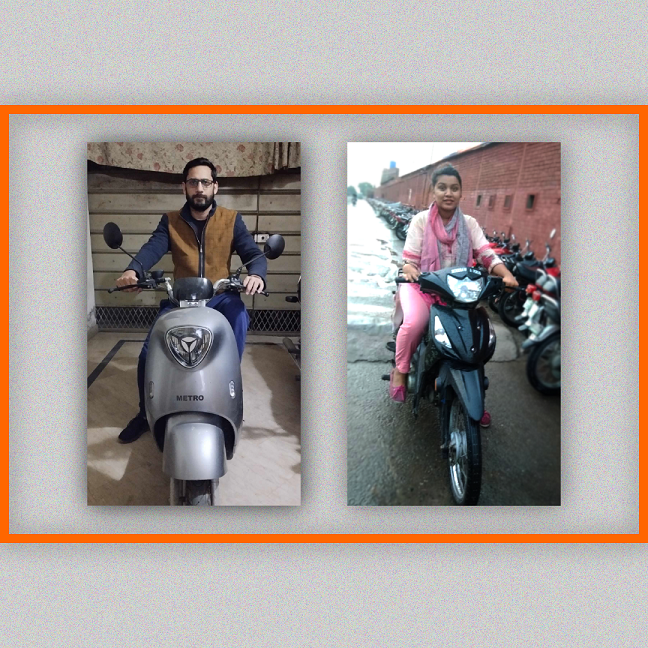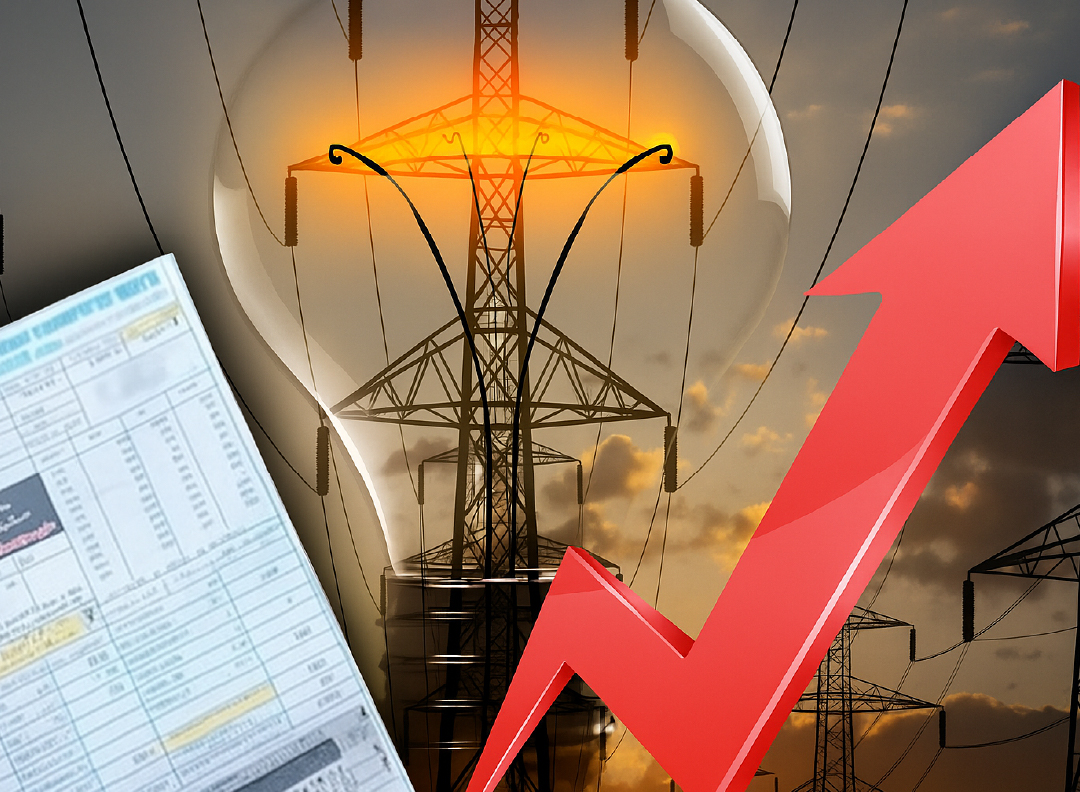Maryam Al-Nissa, studying law at Islamia University Bahawalpur, resides in the adjacent city of Khanqah Sharif. Her university is 16 km away from her residence. In the first year of university, she used to commute by rickshaw, which would cost her 10,000 rupees per month. Later when she joined a law firm for an internship the arrangement had to change.
The rickshaw driver provided her with the pick and drop in this entire loop - causing her to waste time as well as pay him double the fare. Moreover, the additional outlay affected their household budget as Maryam’s father had to bear the educational expenses of her five siblings too.
Her father decided to buy an electric scooty for her, which added convenience to her commute loop.
"I don't have to wait for someone to pick me up, and it helps save money which was previously spent on rent. The scooty does not make any noise nor does it emit any kind of smoke. Whenever I give my friends a ride, it boosts my confidence and makes me feel great".
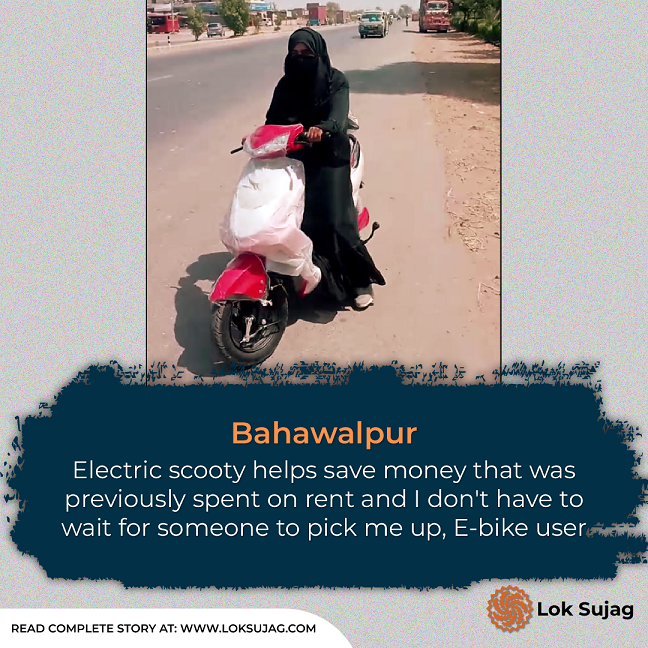
According to the annual report of the Pakistan Statistical Institute for 2022-23, there are more than two crore 68 lac motorcycles registered in Pakistan. In 2023, the price of petrol in Pakistan touched 331 rupees, which further added to the cost of transportation. Inevitably, people are considering alternative energy sources for their daily commute.
Ali Roshan is a resident of Lahore and has been using an electric bike for the past six months. He works as a software engineer in Johar Town Lahore, for which he covers roughly 20 km from home to work. Previously he would take his car to the office but changed his mind after an upsurge in the petrol price, which meant he had to set aside Rs25,000 per month for fuel.
One of his colleagues told him about an electric bike. He went to the showroom on his way back from work and took a test drive.
"My budget was two lac rupees, so I bought an M6 e-bike. My office has a solar facility that I utilize to charge my bike, during my work hours. It charges in four to five hours and consumes one and a half units of electricity”, shares Ali Roshan.
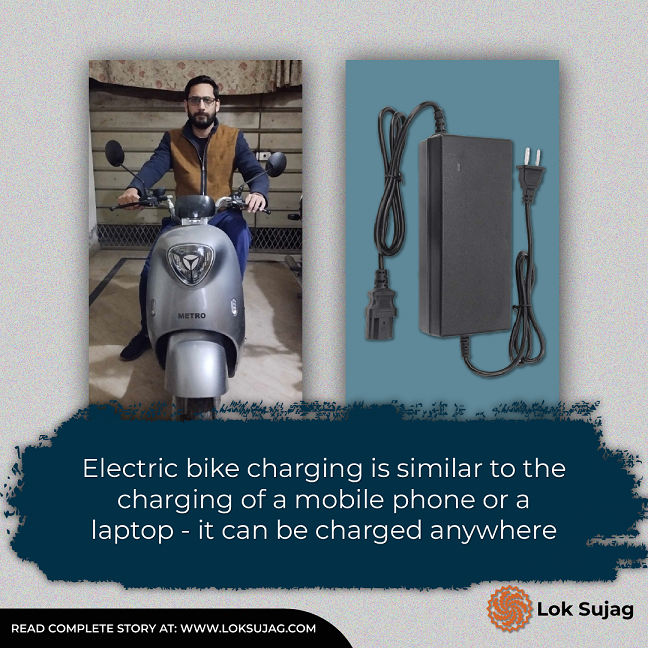
Electric Vehicles (EVs) are convenient, but due to increasing load shedding and the non-availability of fast charging points, people hesitate to switch to them.
Dua Mirza, a journalist, who commutes to her workplace and for fieldwork on a fuel-based motorcycle, shared her experience with Lok Sujag. She has been using a fuel bike for the past five years.
“The e-bikes’ price range is too high. If there were more charging points in the city, people like me - who spend most of their time outside the office and home for fieldwork - will definitely want to turn to electric vehicles”, Dua suggested.
Dr Aazir Khan is a Mechanical Engineer. He has worked as an EV expert with various European companies for nearly two decades and is currently serving as the Director at the Integrated Engineering Centre of Excellence (IECE) of the University of Lahore.
Dr Aazir informs that e-bike charging is similar to the charging of a mobile phone or a laptop - it can be charged anywhere.
“Bikes have a charging gauge like a fuel gauge. Like a petrol bike, an electric bike also needs a reservoir and the bike can run for up to 30 km even after reserving it. Hence, it can be charged anytime near the battery drainage and can contain a separate charged battery”, Dr Aazir adds, while talking about the scooties.
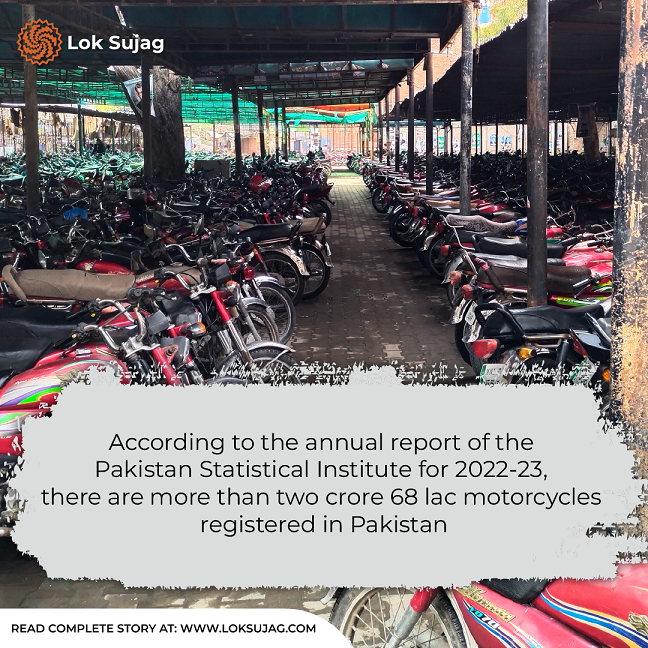
He also acknowledged that the batteries used in Electric Vehicles (EVs) are expensive. “People need to understand that if a petrol-powered bike gives an average range of 50 km, its monthly cost will be around Rs 4,000, but an electric bike will cost only Rs 500 for the same range of distance.”
He also clarifies that EVs can be repaired by a regular electrician. Adding that, unlike petrol, they do not produce any kind of smoke, so are environment friendly.
According to the United Nations Environment Organization, if 90 percent of motorcycles are transferred to electric motorcycles by 2030, carbon emissions will be reduced by 11 billion tons by 2050.
Electric Vehicle Policy 2020-25 was approved in Pakistan in 2019. By 2030, 30 percent and by 2040, 90 percent of passenger vehicles and heavy-duty trucks will be converted to electric vehicles under this policy.
However, the ground situation is quite different from the policy framework.
According to the Ministry of Industry and Production, currently, only six companies are manufacturing or assembling electric motorcycles in Pakistan while licences have been issued to 31 companies.
Also Read

Changing gears: How electric vehicles can simultaneously address Pakistan's financial and environmental problems
Samaira Hina is a resident of Bahawalpur. She is the first woman dealer in South Punjab selling electric bikes in Bahawalpur and Muzaffargarh.
She provides special discounts to her female customers. In the last six months, she has sold 15 electric bikes, of which two were bought by men and 13 by women.
“90 percent of buyers are women who have never ridden a bike. The e-bike does not need to be kicked to run, but it starts by pressing a switch. Customers are also very happy as they are saving up to Rs15,000 per month on fuel”, Samaira told Lok Sujag, adding that “currently an e-bike costs from 90 thousand to 2 lakh 25 thousand rupees in Pakistan”.
Waqar Anwar is the managing director of SAHER Electric. His company makes retrofitting equipment that can easily transform petrol-powered bikes or vehicles into electric ones. Waqar told Lok Sujag that people who cannot afford to buy e-bikes can convert their petrol-based vehicles into electric vehicles through this process of retrofitting.
Through the valuable insights of EV users, manufacturers, and experts, it can be concluded that EVs are not only cost-effective on an individual level but also on a national level. If Pakistan switches to EVs, it will help in lessening oil imports, supporting local industry, and combating the pressing issue of climate change. An interesting aspect is that Electric Vehicles can be charged by renewable energy sources such as solar systems, reducing both cost and pollution even more.
Published on 6 Feb 2024
